
Building the next generation of intelligent agents to empower our nation
AgriTech
Crop/yield optimization, precision irrigation, advisory.
Climate & Disaster
Monitoring, early warning, resilience.
Public Health
Triage, diagnostics support, referral, health records automation.
FinTech
fraud detection, financial inclusion, risk scoring, KYC.
Digital Inclusion
Learning access, accessibility, low‑cost devices.
Urban & Infrastructure
Traffic, energy, city operations.
About the Hackathon
Largest multi-city technology initiative, designed to accelerate multi-agent AI innovation for real-world impact. Over two action-packed tracks, participants will design, code, and deploy solutions that think, coordinate, and act — tackling the nation’s most pressing challenges.
🚀 What makes it unique?
• National Priority Domains: Agriculture, FinTech, Climate Resilience, Health, Education & Public Service
• Immersive Experience: On-premises coding, low-code prototyping, and expert mentorship
• Beyond the Hackathon: Direct exposure to investors, and industry leaders, with pathways to incubation, pilots, and seed funding
Largest multi-city technology initiative, designed to accelerate multi-agent AI innovation for real-world impact. Over two action-packed tracks, participants will design, code, and deploy solutions that think, coordinate, and act — tackling the nation’s most pressing challenges.
🚀 What makes it unique?
• National Priority Domains: Agriculture, FinTech, Climate Resilience, Health, Education & Public Service
• Immersive Experience: On-premises coding, low-code prototyping, and expert mentorship
• Beyond the Hackathon: Direct exposure to investors, and industry leaders, with pathways to incubation, pilots, and seed funding
About the Hackathon
The Innovista Agentic AI Hackathon catalyzes multi‑agent AI solutions for the developing world. Teams build production‑grade agents that coordinate, reason and act—targeting high‑impact use cases across Pakistan.
- Focus areas: Agriculture, Fintech, Climate, Health, Education & Public Service
- Hands‑on workshops, mentorship, and direct VC/investor access
- Post‑event incubation pathways for top teams
The Innovista Agentic AI Hackathon catalyzes multi‑agent AI solutions for the developing world. Teams build production‑grade agents that coordinate, reason and act—targeting high‑impact use cases across Pakistan.
- Focus areas: Agriculture, Fintech, Climate, Health, Education & Public Service
- Hands‑on workshops, mentorship, and direct VC/investor access
- Post‑event incubation pathways for top teams
Key Outcomes
- Engage 2,000+ participants across 6 cities
- 100+ working prototypes; 20–25 finalists
- Repeatable national talent & product playbook
- >30% women participation & provincial representation
- Pilot/accelerator/seed pathways in 3–6 months
Challenges & Tracks
Pick the track that best fits your team. You can only register for one track.
TRACK 01
Agentic Coding Challenge
Build a functional multi‑agent system (min. 2 collaborating agents) addressing a national‑priority problem. Integrate at least one Google API or service, and demonstrate end‑to‑end orchestration.
- Domains: Agri • Fintech • Climate • Health • Education • Public Service
- Deliverables: Codebase, architecture diagram, short demo video, deployment notes
- Judging: Autonomy, orchestration, ML sophistication, real‑world feasibility
- Location: Regional Rounds in Karachi, Lahore, Islamabad, Bahawalpur, Peshawar, Gilgit‑Baltistan. National Finale in Islamabad
- Prizes: Cummulative Cash Prizes of PKR 3M for Regional and National Winners and Runnerups
TRACK 02
Vibe Coding Challenge with Firebase Studio
Prototype a production‑ready application using Google Firebase Studio with built‑in agentic workflows. Solutions should target the same national‑priority domains, emphasizing usability, localization, and rapid deployability.
- Mandatory: Built on Google Firebase Studio
- Deliverables: App project, design doc, demo video, deployment & cost notes
- Judging: UX, practicality, integration quality, impact potential
- Location: Digital Submissions from across Pakistan. National Finale in Islamabad.
- Prizes: Cummulative Cash Prizes of PKR 1M for Winners and Runnerups
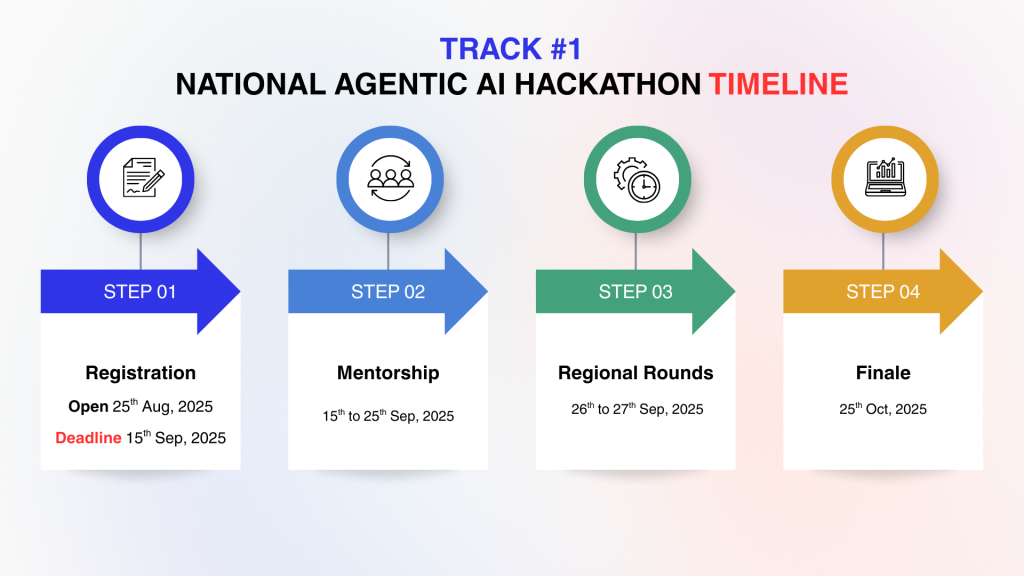
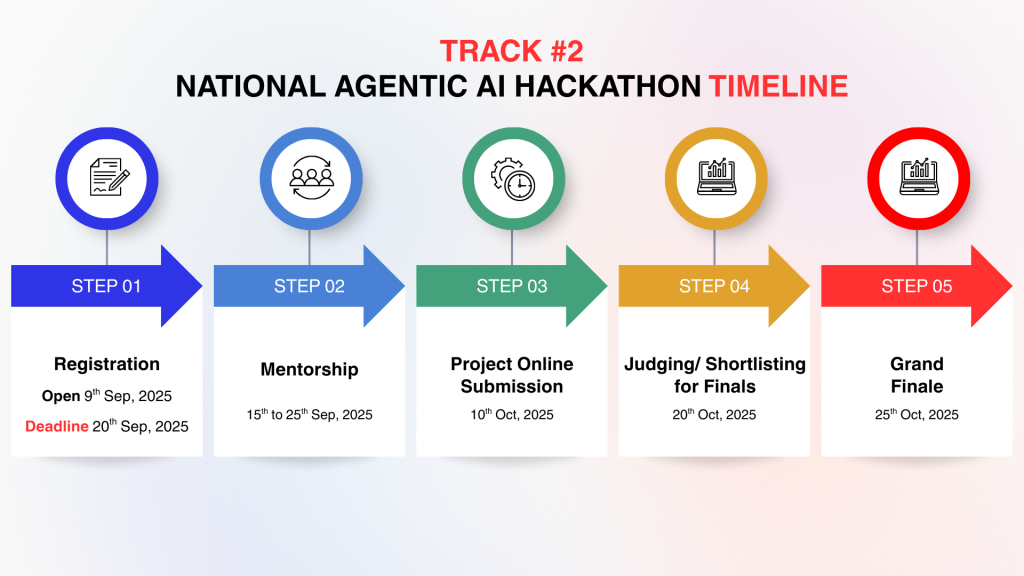
Partners

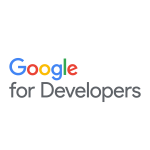
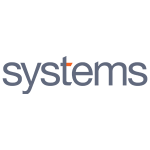
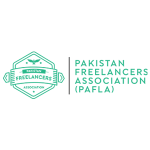

Eligibility and Team Composition
Age
Pakistani citizen or permanent resident
Team size
Open to all backgrounds
Skills
Programming (any language) + basic AI/ML concepts
Encouraged
≥30% women participation & regional inclusion
Deliverables
Attend workshops, submit artifacts, join rounds
Why Participate?
Mentorship
Learn from AI and industry experts through workshops and hands‑on sessions.
Innovation
Build solutions for critical real‑world problems using state‑of‑the‑art AI tools.
Networking
Collaborate with talented peers and expand your professional network.
Rewards
Stand a chance to win exciting cash prizes and gain recognition for your work.
Evaluation Criteria
Weighted scoring across four dimensions. Minimum: functional multi‑agent system (≥2 agents), working demo, at least one Google API integration, clear developing‑world relevance, complete submission.
TRACK #1 Evaluation Criteria
1. Agentic AI
- Multi‑Agent Design
- Agent Autonomy
- Inter‑Agent Orchestration
- Code Quality & Architecture
- AI/ML Implementation
- Google Tech Integration
- Problem–Solution Fit
- Developing‑World Relevance
- Implementation Feasibility
- Usability
- Accessibility
- Demonstration Quality
TRACK #2 Evaluation Criteria
1. Application Design & Functionality Clear definition of use case in one of the national-priority domains Logical workflows and modular design within Firebase Studio Demonstrated working prototype with end-to-end functionality Effective use of agentic workflows / automation features
2. Technical Implementation & Google Integration Proper utilization of Google Firebase Studio (mandatory) and related Google services (Firestore, Auth, Translate, Maps, etc.) Clean project structure and documentation of design choices Scalability and maintainability considerations Efficient use of cloud features (storage, messaging, analytics)
3. Impact & Feasibility Problem–solution fit with relevance to Pakistan’s context Accessibility for low-resource environments (low bandwidth, local languages) Deployment feasibility and potential for real-world adoption Potential for scaling across regions or sectors.
4. User Experience & Demonstration
Intuitive user interface, usability, and design consistency
Support for multiple languages and cultural localization
Accessibility features (for diverse literacy/tech exposure levels)
Clear, compelling live demo and presentation quality
Judges and Mentors













